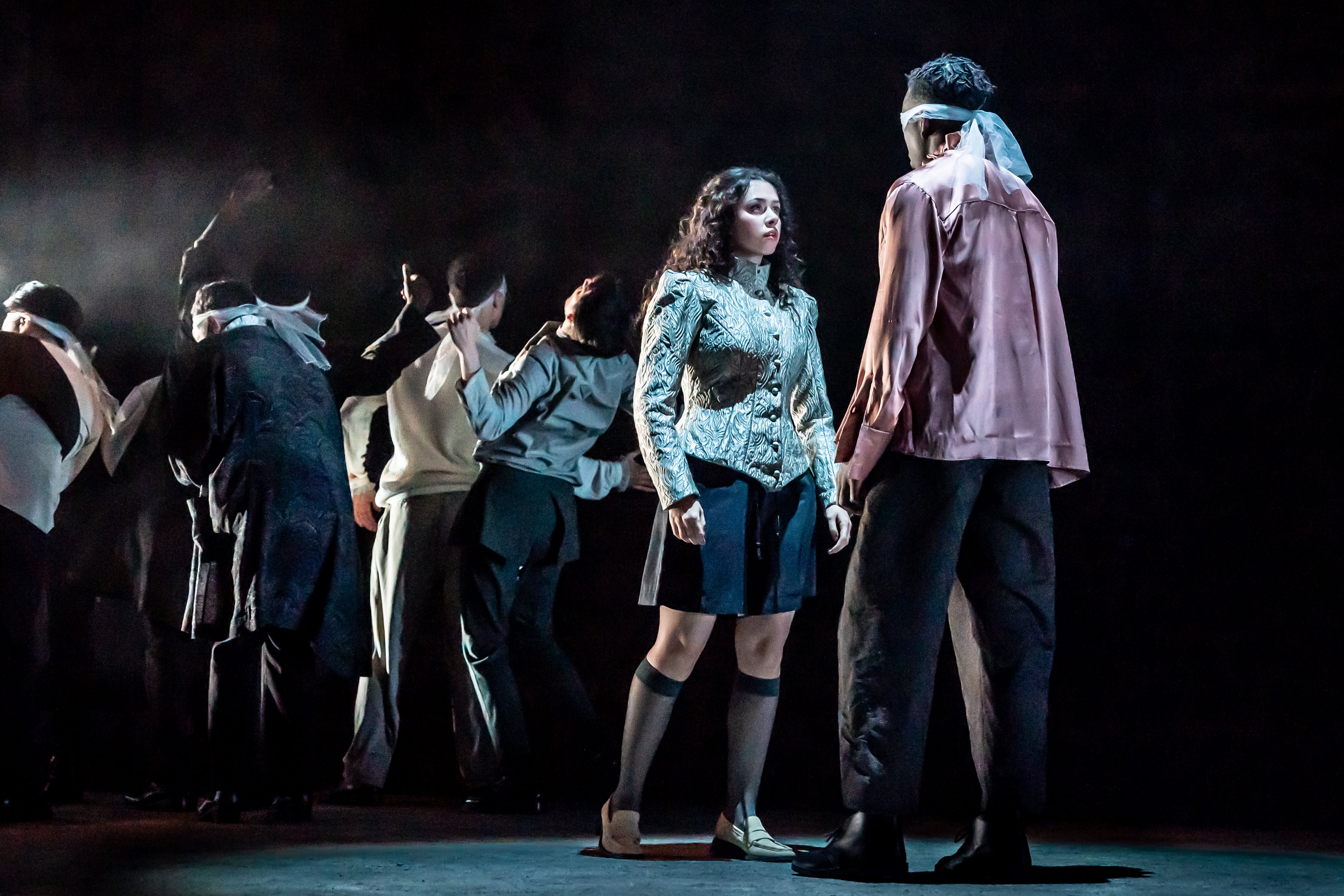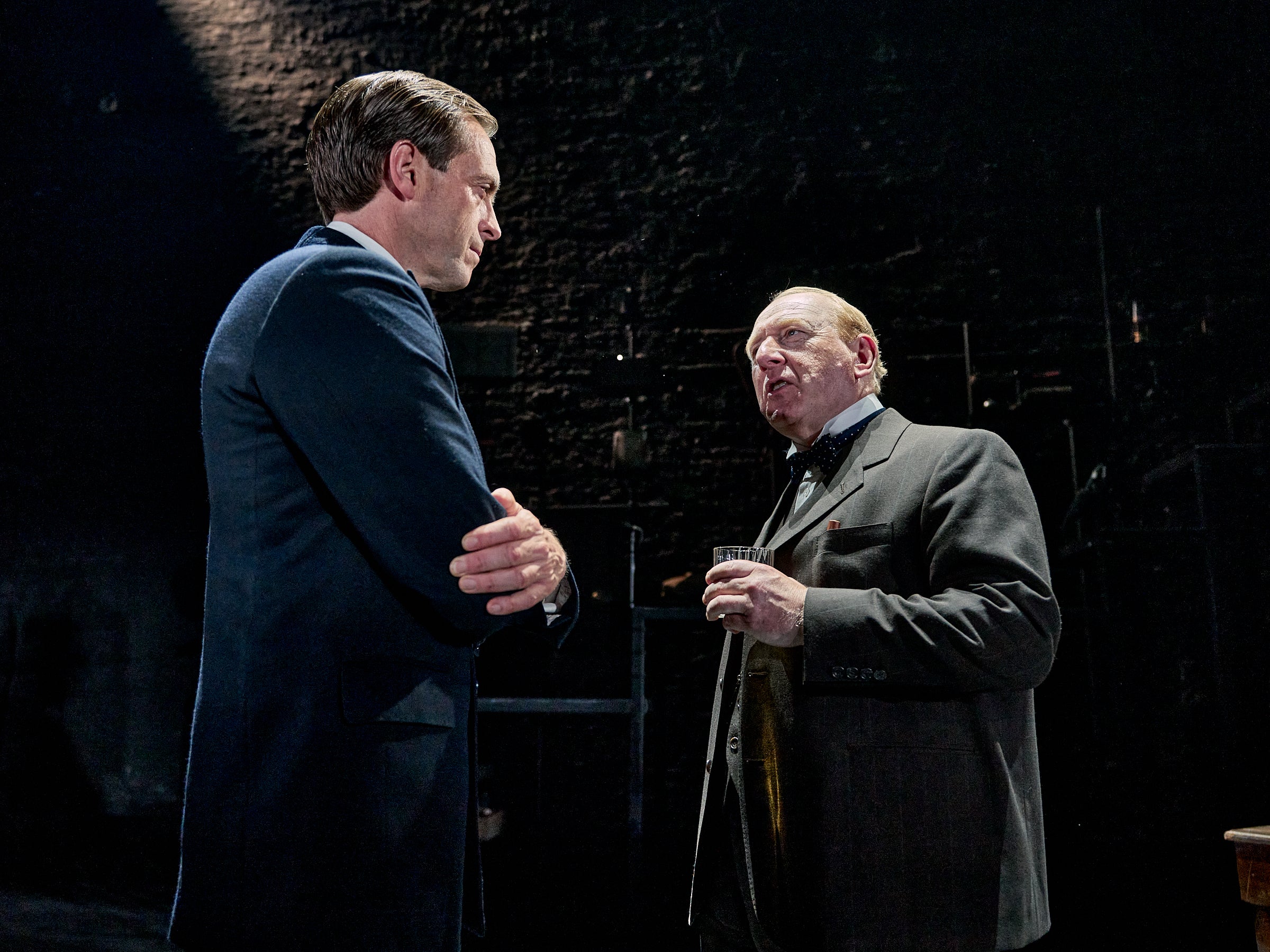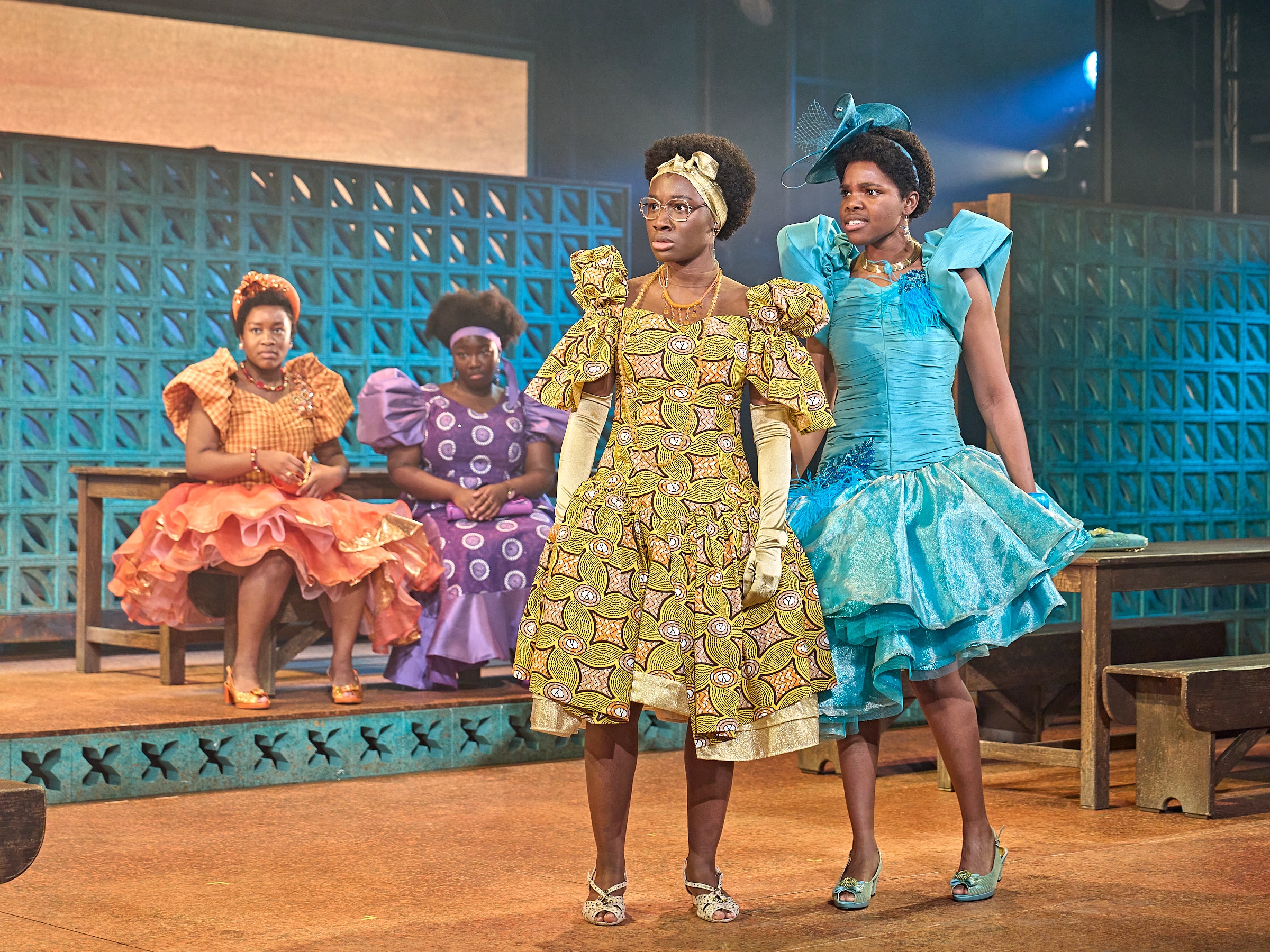The Week on Stage: From Romeo and Juliet to When Winston Went to War with the Wireless
A guide to the week’s theatre

This week, Shakespeare at the Almeida, the birth of the BBC at the Donmar Warehouse, and a comedy set in Ghana at the Lyric Hammersmith.
Romeo and Juliet – Almeida ★★★★☆
It’s rare to come across a production of Romeo and Juliet that stays true to Shakespeare’s promise of “two hours’ traffic” but tonight at the Almeida, director Rebecca Frecknall complies. A tight runtime comes at a price, however, and in this case that means a hefty edit and no loo break. Still, Frecknall’s play gains a lot from those cuts and the result is a visceral, charged production that is also accessible.
This is Frecknall’s first go at the Bard. It’s an unsurprising choice for a director who is increasingly renowned for shaping old tales into new forms, as she did most recently with A Streetcar Named Desire and Cabaret. Romeo and Juliet gets the Frecknall treatment, too, with a pared-back script, a sprinkling of dance, and a minimalist set by Chloe Lamford (brought to life with evocative, subtle lighting from Lee Curran).

As the eponymous lovers, Toheeb Jimoh (sweet and smiley Sam Obisanya in Ted Lasso) and Isis Hainsworth are well-matched. Jimoh is moonstruck and tender, reeling off columns of metre rapidly, casual as you like. Meanwhile, Hainsworth effectively plays up Juliet’s young age, making for moments of comic relief. The chemistry between the two then feels less like true love than infantile infatuation. (Who’s to say which is more dramatic?) Jack Riddiford is a fantastic Mercutio, and it is to Frecknall’s credit that his “Queen Mab” speech is spared from her cutting room floor, where other scenes such as Paris’s death reside. Mercutio is swaggering and lustful, irrepressible even in death.
Speaking of deaths, there may be fewer in Frecknall’s production, but those that do make it to the stage are potent – played out in real time with a good measure of realistic arghs and urghs from the actors. The play is more than comfortable revelling in its violence. Jonathan Holby’s stylized fight direction and Frecknall’s dance choreography often bleed into one another, with varying levels of success. The choice to soundtrack a number of those set pieces to Prokofiev’s Romeo and Juliet is understandable but distracting – so marred are those thunderous chords by The Apprentice. Frecknall’s production is impressive overall, propelled along by a fast-paced energy and an individual perspective. Annabel Nugent
When Winston Went to War with the Wireless – Donmar Warehouse ★★★★☆
Jack Thorne’s new play, set in 1926, is about the early days of the BBC. Families can’t afford to eat, striking workers are bringing the country to a standstill, and the recently established public broadcaster has been accused of regurgitating Tory propaganda. Sound familiar? But it’s not just the political relevance that makes When Winston Went to War with the Wireless feel fresh. This is a pacey play with powerhouse performances and a slick production.
The BBC presented in Thorne’s play, directed by Katy Rudd, is one with a complex relationship with the government. At the time, the broadcaster was limited to one news bulletin a day. But then the general strike begins and the BBC marches in, filling the place of the printing press and the homes of striking workers with songs, comedy skits, and yes, news. John Reith (Stephen Campbell Moore), the man responsible for running the BBC, insists it’s a great thing for democracy. “You can lie in print, but on the wireless, someone will hear it in you,” he declares. “A mic; it makes you honest.” Winston Churchill (Adrian Scarborough) rubs his hands together with glee, seeing the wireless as his own personal mouthpiece.

But Reith’s decline comes quickly. Campbell Moore initially carries a twitchy, nervous energy as he conveys Reith’s dignity and belief in the BBC as a moral good. But he’s easily swayed by the power and pomp of Scarborough’s Churchill into pushing government lines and censoring opposition. In Campbell Moore, those nerves regress to near madness as Reith, haunted by war and the memory of a former lover (Luke Newberry), realises the BBC needs to lose its morals to survive. Scarborough, meanwhile, prevents his Churchill from being a full-on caricature, and is shown deferentially scurrying around after prime minister Stanley Baldwin (the ever-excellent Haydn Gwynne).
The leads are well supported by a multitalented ensemble cast, who also create the show’s auditory world. This comes down to the ingenious sound design of Ben and Max Ringham, who create a soundscape of Foley artistry (the technique used to create sound effects for radio). With the consultation of Foley artist Tom Espiner, the cast create the audio world of 1926 before us with household objects: hands in a goldfish bowl for a running river, shoes in gravel for Churchill’s marches.
Sound is the thread that links Thorne’s play together, even in moments of silence. In Laura Hopkins’ set, microphones hang in the air, dropping down to enhance the sounds of the Foley artists or actor-musos. Yet in the show’s final moments, they descend and surround Reith, trapping him in a metaphorical forest of his own making. At times, incorporating so many design elements can leave the supporting characters feeling a little thin, with cameo roles given the same depth as political leaders. Still, it doesn’t diminish Rudd’s production, the power of which reverberates around the Donmar Warehouse like an echo. Isobel Lewis
School Girls; Or, The African Mean Girls Play – Lyric Hammersmith ★★★★★

Hell hath no fury like a teenage girl scorned. Since its 2004 release, Mean Girls has been the flagship example of this adage – and in School Girls; Or, The African Mean Girls Play, we quickly learn it’s a truth that holds up, no matter the setting. Based in 1980s Ghana, Jocelyn Bioh’s acclaimed off-Broadway hit explores the rapidly changing dynamics of a friendship group, led by the obnoxious but charismatic Paulina (Tara Tijani). Bioh’s answer to Regina George, Paulina keeps her girls in check about their weight, intelligence and fashion sense. And she isn’t the type to sugarcoat her words. But the arrival of new girl Ericka (Anna Shaffer) poses an immediate threat to Paulina’s reign as Queen B. American-raised, light-skinned and the daughter of a wealthy cocoa farm owner, Ericka is everything Paulina and the other girls aren’t. It’s not long before everyone’s attention turns in her direction but Paulina won’t give up her crown without a fight.
There are barbs about invisible boyfriends. Jabs about absent parents. And shocking swipes about weight and complexion. Things get brutal as the schoolgirls trade verbal blows with ease. But as easily as you cackle at their supreme shade skills, you’re also silenced by lines that expose the genuine hurt behind the students’ harsh words. Bioh tackles the capital-I issues without ever letting her play veer into PSA territory. Her script elegantly expresses how factors such as colourism, poverty and white supremacy can lead to self-hatred that inevitably spreads outward. All eight actors of the ensemble cast shine on stage, from the necessary warmth of headmistress Francis (Alison A Addo) to the hilariously ditzy double act of pupils Gifty and Mercy (Francesca Amewudah-Rivers and Bola Akeju).
Bioh’s play is more than Africa’s answer to Mean Girls. It’s an incisive, intelligent 80-minute exploration of teenage wrath – and the funniest thing on stage this summer. Nicole Vassell






Join our commenting forum
Join thought-provoking conversations, follow other Independent readers and see their replies
Comments